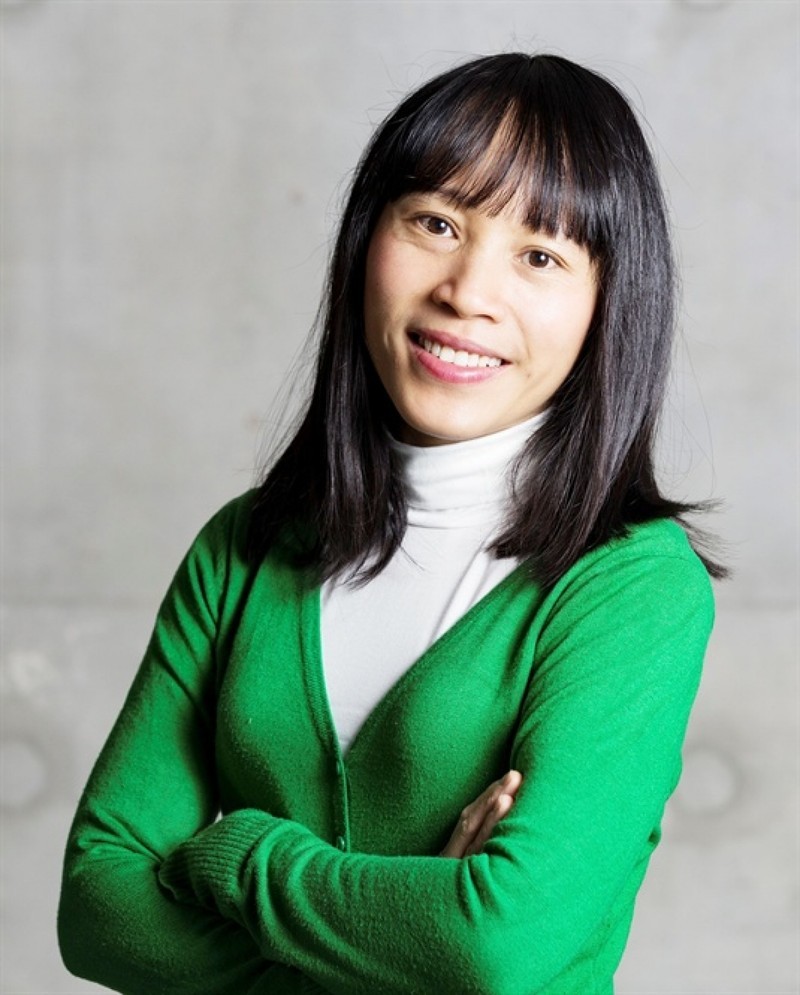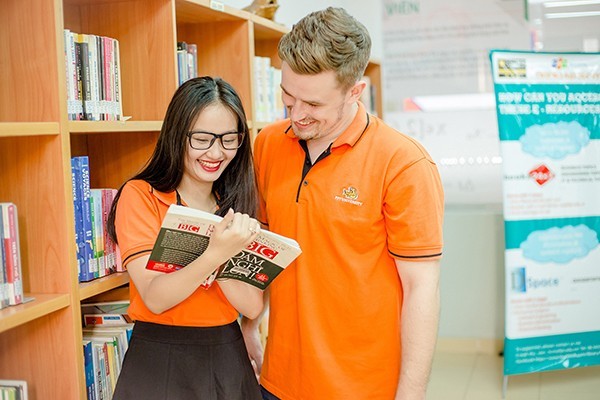
Prof. Dr. Tran Thi Ly: Vietnam could promote education export
Latest
 |
| According to GS. Dr. Tran Thi Ly, Vietnam can promote its ability to 'export' education. |
As someone who has researched and written many books on Vietnamese education and international education, how do you assess the potential of Vietnam’s “education export” at the moment and in the future?
Vietnam already has a number of universities that are very active and innovative in taking the opportunity to set up program on internationalization and education export.
Over the past 10 years, the internationalization of education in a number of majors and universities has made significant strides, helping Vietnam in improving the quality of its curricula. Therefore, Vietnam is getting closer to the development in higher education, comparing to other countries in the ASEAN region and the world.
At the same time, Vietnam has strengthened international cooperation in education, programmes, student and teacher exchange, cooperation and capacity building in scientific research, and development and appliance the results into practice, and raising the brand and rank of some universities.
Besides, diversifying opportunities for international integration and developing human resources for the country. Vietnam has had certain successes in the field of cooperation in developing international programs and short-term education export.
Notably, Vietnam is among the top 4 destination for Australian students for internships and short-term studies. According to Australian Department of Foreign Affairs and Trade, the number of Australian students studying and doing internships in Vietnam under the New Colombo Plan reached 3,612 in 2019.
Progress in the past 10 years shows that Vietnam can fully promote its ability to internationalize its education instead of just being an "importer" as before, or just doing "fragmented" internationalization, focusing only on "borrowing" the program, or using English as the main language of the course.
So, can you give us a "tip" to make our country a popular and sustainable destination for international students?
To promote these potentials, first, Vietnam needs to have a representative organization, promoting the images of Vietnamese university. There’s also a need for close cooperation on education internationalization between educational institutes. Therefore, Vietnam's international education will be further promoted, especially in the following areas:
Vietnam, as a regional hub for short-term educational courses, should focus on fostering/expanding expertise in key regional industries, semester-long exchange courses and short-term study abroad courses or face-to-face and online internships. Language courses for international students such as English and Vietnamese are also needed.
These are not only including traditional international joint educational programmes for bachelor's or master's degrees, but also short courses such as international skills training courses in key industries. We should also take advantage of the opportunities offered by digital technology.
 |
| Vietnam can further promote education exports, especially in the field of short-term study and internship. (Source: DĐDN) |
Besides, the education sector needs to work closely with other sectors such as tourism, culture and diplomacy to build the image of Vietnam as an attractive destination for Australian students.
Vietnam needs to keep an update on new trend in the world about combining the strengths of educational cooperation, human resource development and bilateral relations with countries in the region and the world.
For example, Australia's International Skills Training program considers Vietnam to be one of seven prioritized partner (along with Indonesia, Malaysia, India, Colombia, Brazil, Mexico and South Korea) on upskilling and reskilling in key industries.
This is an opportunity for international cooperation in training human resources for Vietnam through short courses in key industries, while supporting the development of bilateral relations through education.
Regulations on cooperation in building joint or international programs also need to be flexible.
Along with that, Vietnam needs to amend and change regulations related to quality control of these newly developed models to ensure flexibility, dynamism and creativity accompanying quality of international joint educational programs.
If so, Vietnam can further promote education export, especially in the field of short-term study and internship.
Against that backdrop, how should Vietnamese universities be quick and know how to seize the opportunity?
Vietnamese universities can invest in building flexible and innovative short courses for international students. For example, with a 3-month course, we can spend 1 month for students to study at universities, 1 month for internship and the remaining 1 month to combine with tourism industry to help students learn the culture and life of Vietnamese people. As a result, these courses will be more effective and enjoyable.
In addition, Vietnamese universities should consider taking advantage of opportunities and developments of IT and digitalization to cooperate with universities around the world.
Thereby, to build short courses and online intership programs, etc. We need to diversify education export models and provide potential partners with a variety of options tailored to their needs in the context of COVID-19 and post-COVID-19.
Universities should also consider to work together in the internationalization of education, instead of doing it on their own.
In your opinion, what policies are needed to support universities to realize their potential in internationalizing education?
In my opinion, it is necessary to have a reasonable strategy for a closer linkage of every aspects of internationalization of education, including international cooperation in teaching, international joint training programs, exchange of students and teachers. At the same time, cooperation in scientific research and improving capacity in research, development and application of scientific research results are also needed.
Vietnam can also learn from the experiences of other countries in the world. These are strategies to effectively use international cooperation in higher education as a tool to strengthen diplomatic relations with countries in the ASEAN region and around the world.
| Prof. Dr. Tran Thi Ly (Deakin University, Australia) is a well-renowned scientist with great contributions in the field of academic research and teaching. - In 2019, she was listed as Forbes Vietnam’s top 50 Vietnamese Most Influential Women. - One of the first two Vietnamese scientists to receive the Noam Chomsky's Shining Star Achievement in Research Award. - Winning more than 30 research awards and scholarships from international and national associations for outstanding achievements in scientific research, teaching and learning. |

















